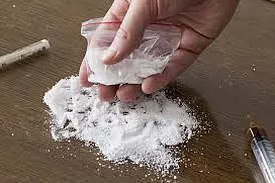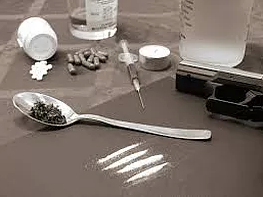DRUG ADDICTION IS A HUMAN RIGHTS ISSUE THAT BURDENS US ALL
- May 8, 2017
- 4 min read
July 25, 2016, I remember the anticipation I had felt that day, looking forward to hearing the speakers on the first day of the 2016 Democratic National Convention. I was excited at the possibility of seeing a woman become president of the United States and wanted to be part of the movement. That excitement quickly turned into outrage and disappointment. As I sat glued to my television, I began hearing content that evening heavily focused on the atrocity that drugs have plagued on the white suburban middle-class and how there needed to be more funding for rehabilitation. Wait, what??? Is the widespread drug addiction that has plagued communities of color for generations irrelevant? The only solutions offered to communities of color were laws designed to punish addicts with mandatory jail or prison sentences that drove dramatic incarceration rates and tore families apart. In addition to, the wide distribution of a legal narcotic called Methadone that provided hefty profits for pharmaceutical companies and did nothing to solve the drug problem in these communities.
Drug abuse affects people of all races, gender, and socioeconomic backgrounds. It does not discriminate, and solutions to end this problem should be driven by its impact on humanity regardless of race. There are many other societal issues affecting the poor that can be addressed if we tackle this problem with unified plans and solutions that benefit all people. There is a direct correlation to addiction and homelessness. A survey by the United States Conference of Mayors found that 68 percent of cities reported that substance abuse was the largest cause of homelessness for single adults.
1. Drug use is intrinsically linked to prostitution. It is estimated that as high as 85% of all prostitutes are drug users. Many prostitutes, men and women, are selling sex to support their drug habits and are often the victims of sexual exploitation, violent crimes, rapes, assaults and other serious crimes that often are unreported.
2. Drug-addiction is also a main driver for the increasing number of children entering foster care. Are you questioning why I feel that I have the authority to speak on this issue with such conviction?
As a child growing up in the 1970s, I know all too well how drug addiction impacts individuals, their families, and their communities. Both of my parents were heroin addicts. My environment was filled with family and friends who by society’s standard were solid middle-class working adults. They also carried the unspoken burden of heroin addiction. I remember their constant battle to lead functional lives, while dealing with the need to feed the demon raging inside them. At the time, I did not fully comprehend why my parents, relatives and extended family were in a constant state of nodding and scratching. All I knew is that I felt bothered, and shamed knowing that this was not normal. As a teenager, crack began to plague my community. It changed the game, those who could function in society on heroin were unable to keep up the façade once they were introduced to crack. My mom made the decision to try crack and it changed our lives dramatically.
My dad died of AIDS when I was 16 and my mom went missing for well over a year. Her disappearance led me to believe that she was dead, and no one had found her body. Imagine thinking your mother was dead, and suddenly getting a call that you needed to bail her out of jail for prostitution. It was a bittersweet moment for me. The joy of knowing that my mother was alive, yet the rage and shame of knowing that she was selling her body to feed her addiction. She told me that crack was a different demon than heroin. She could take her daily dose of heroin, go to work and function. However, crack was something she had to have all the time, she was willing to sell her soul to feed her crack addiction. After being homeless and making a conscious decision to put her love of family above her love of crack, my mother was able to beat her crack addiction. Unfortunately, she could never beat the Heroin demon. Upon her death, I found 20 bricks of heroin in her purse.
This was my environment and the circumstance of many people of my generation growing up in urban communities across the country. I was fortunate that I never used drugs, but there are so many people who grew up in similar circumstances that chose to continue the cycle. I place no judgement on them, as I understand how they can feel like their circumstances are too insurmountable to overcome. Addiction is a chronic and relapsing brain disease that can be healed. As a society, we cannot and must not judge, we must come together and help those in need regardless of race, gender or socioeconomic background. Always remember that there is more power in unity than division. This is not a black or white issue, it’s a human rights issue that burdens us all.
http://www.endhomelessness.org/library/entry/opioid-abuse-and-homelessness
http://alcoholrehab.com/drug-addiction/sexual-exploitation-and-substance-abuse























Comments